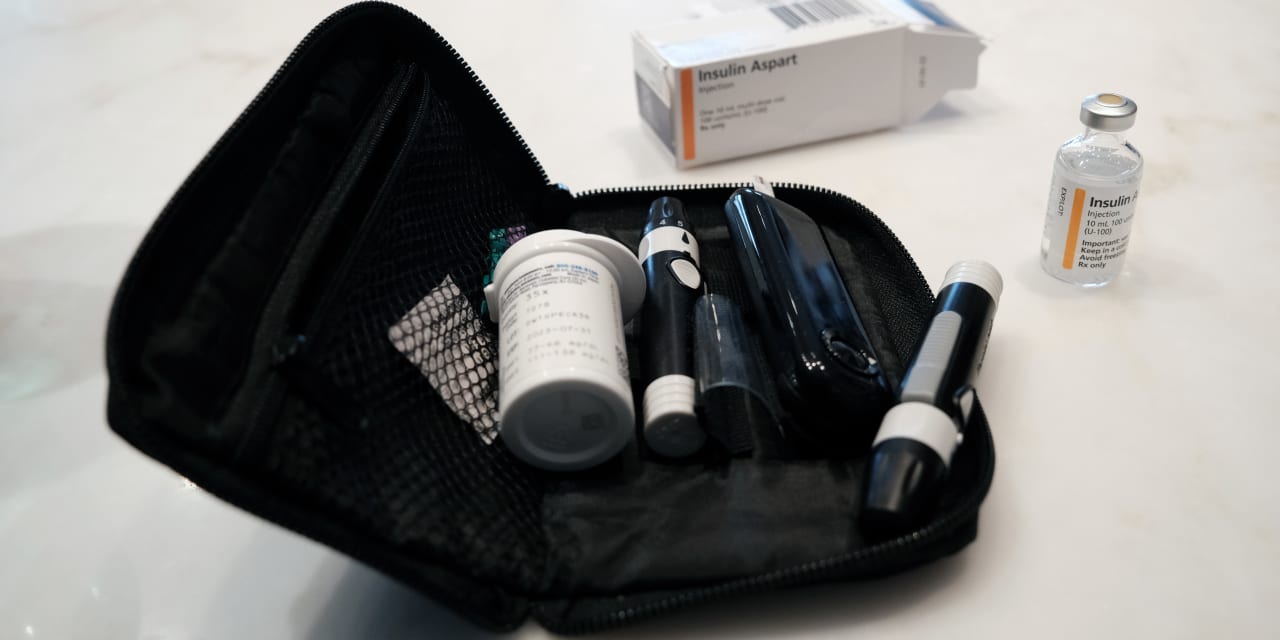Eli Lilly and Co.’s fourth-quarter sales and profit beat expectations as its newer diabetes and obesity medications gained broader insurance coverage.
About 90% of U.S. Type 2 diabetes patients with commercial insurance or Medicare Part D prescription-drug plans now have access to Lilly’s diabetes drug Mounjaro, the drugmaker said, while about one-third of people with private health plans have coverage for the company’s obesity drug Zepbound, which was approved in the U.S. late last year.
Broader access to Mounjaro — and a corresponding drop in patients’ use of savings card programs — helped Lilly realize higher prices in the fourth quarter and fueled sales growth, the drugmaker said.
For the fourth quarter, net income rose to $2.19 billion, or $2.42 a share, from $1.94 billion, or $2.14 a share, in the same period a year ago. Excluding nonrecurring items, adjusted earnings per share of $2.49 beat the FactSet consensus of $2.30.
Revenue jumped 28.1% to $9.35 billion, above the FactSet consensus of $8.95 billion, with higher realized prices powering most of that growth.
In the U.S., revenue grew 39% to $6.46 billion, while sales outside of the U.S. grew 10% to $2.9 billion.
Excluding Mounjaro, U.S. realized prices fell by a “high-single digits” percentage, Lilly said, weighed down in part by lower prices realized for the insulin Humalog and diabetes drug Trulicity. The drugmaker said it continues to see delays filling orders for Trulicity, hurting volume.
Tirzepatide, the active ingredient in Mounjaro and Zepbound, has also shown promise as a treatment for the fatty liver disease known as metabolic dysfunction-associated steatohepatitis, or MASH, according to trial results released by Lilly Tuesday. In a Phase 2 study of adults with the condition, up to 74% of participants treated with tirzepatide achieved an absence of MASH at 52 weeks, Lilly said, compared with nearly 13% of participants on placebo.
That news dragged down the stocks of other drugmakers working on MASH treatments, as shares of Madrigal Pharmaceuticals Inc.
MDGL,
and 89bio Inc.
ETNB,
fell about 16% Tuesday and Viking Therapeutics Inc.
VKTX,
fell 4%.
More key clinical-trial results for tirzepatide are expected later this year, including data from late-stage studies of the drug in obstructive sleep apnea and heart failure, chief scientific officer Dr. Daniel Skovronsky said on a call with analysts Tuesday.
Those potential additional indications for tirzepatide could be critical in further expanding insurance coverage and patient access to the medication. As employers weigh the benefits of covering anti-obesity medications, data on the drug’s effectiveness in cardiovascular and other conditions may be “extremely important for increased employer opt-in,” executive vice president Patrik Jonsson said on the call Tuesday.
Also read: Eli Lilly launches home delivery of obesity drug Zepbound — but warns against its use for cosmetic weight loss.
Amid surging demand for incretin drugs like Zepbound and Mounjaro, Lilly is scrambling to ensure adequate supply. The drugmaker’s manufacturing organization is working on its “most ambitious expansion agenda in our company’s long history,” Chief Financial Officer Anat Ashkenazi said on the call Tuesday. Even so, “we continue to expect demand to outpace supply in 2024,” Ashkenazi said. While the company continues to expand supply every quarter, she said, the most significant production increases will come in the second half of this year.
Lilly is also building up manufacturing capacity for its experimental oral obesity drug orforglipron, which is still in late-stage trials, CEO David Ricks said on the call Tuesday. “If we’re wrong, okay, we’ll have to eat that in the end, if orforglipron isn’t a strong product,” Ricks said. “But if it is, I think it does begin to change the math on supply in this category, and I think that’s a bet worth taking.”
For 2024, the company expects adjusted EPS of $12.20 to $12.70, which surrounds the current FactSet consensus of $12.39. Revenue is expected to rise to between $40.4 billion and $41.6 billion from $34.12 billion in 2023. The FactSet revenue consensus is $39.3 billion.
Lilly’s stock
LLY,
fell 1.2% Tuesday afternoon and has gained 19.8% in the year to date, while the S&P 500
SPX
has gained 3.6%.
Read the full article here




